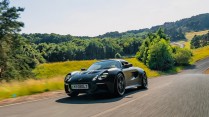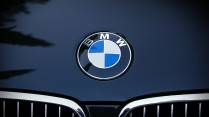Electric Evolution: Tesla Meets Toyota in the Automotive Arena
By Dabbie Davis
Nov 26, 2023 09:00 PM EST

The argument about the leading manufacturer of electric vehicles and hybrids continues. A leader in the industry is obvious based on last year's record. But Toyota challenges Tesla in this arena.
The Battle Ground
In the automotive industry, Tesla and Toyota compete fiercely. Elon Musk wants Tesla to beat Toyota as the greatest automaker by 2030. Recent industry changes make Musk's goals difficult. The Wall Street Journal reports that U.S. electric vehicle (EV) sales have stagnated while hybrids are rising. This shift in client preferences is due to Toyota and Lexus's hybrid success.
In an interview with The Wall Street Journal, David Christ, who serves as the brand manager for Toyota North America, expressed his observations regarding the impact of electric vehicles on the hybrid car market.
He said the industry's electrification focus had made hybrids more common.This industry move has revived the electric vehicle vs. hybrid argument, testing Elon Musk's all-electric automotive future.
Elon Musk's all-electric automotive future is being questioned after this awakening began the EV-hybrid discussion.
Elon Musk's vision -to make the world electric and Tesla the best-selling car manufacturer by 2030, faces a major challenge. Tesla has outperformed Toyota's U.S. bestsellers. However, the slowdown in EV sales growth in the country is new.
Toyota and Lexus released popular hybrid automobiles at the same period. Due to shifting customer taste and market considerations, Tesla and Toyota's fight will influence the automotive industry.
As reported by Bezinga, hybrids present an economically viable alternative to fully electric vehicles, offering the advantages of electrification without the necessity of extensive charging infrastructure.Toyota, which pioneered hybrid technology with the Prius sedan over two decades ago, is seeing a hybrid sales resurgence.
This rebound threatens electric car (EV) futures after last year's fall.
Despite Tesla's impressive 26% growth in all-electric vehicle sales, as reported by data firm Motor Intelligence, Toyota has experienced a 20% increase in deliveries this year across its broad spectrum of electrified options, encompassing both hybrids and EVs.
READ MORE: Self Driving Car Safety Concerns Arise Like Fears of Hacking, Driver Data Protection
Highlights of This Competition
This is why Toyota has a complete plan that includes both hybrid and electric vehicles (EVs). This is in response to the different needs of customers, an idea that investors didn't like at first but is now becoming more accepted.
The latest news that the U.S. Camry will only be hybrid shows Toyota's dedication to its goal. Due to changing customer tastes, hybrids have sold more than cars with internal combustion engines in the past few years.
The Japanese carmaker introduced hybrid technology, which uses battery-powered systems with gasoline engines to save fuel, with the Prius over twenty years ago.
After a drop in hybrid sales last year and a 65% surge in electric vehicle (EV) sales, some thought hybrid technology was entering a new age. Tesla founder Elon Musk tweeted, "Time to move on from hybrid cars, that was a phase." Toyota's decision to go all-in on hybrid technology with the Camry implies that the hybrid-versus-EV argument is far from settled.
Toyota's hybrid-EV strategy fulfills customer and automotive industry needs.
In the midst of the electric vehicle (EV) fervor, some investors initially underestimated the significance of hybrids as competitors to Tesla. Earlier this year, certain investors attempted, albeit unsuccessfully, to remove Toyota Chairman Akio Toyoda from his position due to the company's strategy of diversifying investments across hybrids, EVs, and other technologies.
Toyoda had steadfastly asserted that an all-in approach to EVs, favored by some of their competitors rushing to catch up with Tesla, did not align with the preferences and readiness of many customers. Months later, as companies like Ford and General Motors scaled back their EV production plans, Toyoda's caution appeared to be validated.
He remarked, "People are finally seeing reality." Toyota and its Lexus brands collectively offer 26 electrified vehicle options, including hybrids, EVs, and other technologies in the U.S., experiencing a 20% rise in deliveries through the first three quarters of this year, totaling approximately 455,000 units. In contrast, Tesla, though not disclosing U.S. delivery figures, sold an estimated 493,500 all-electric vehicles during the same period, reflecting a 26% increase according to data from Motor Intelligence.
In a challenging sales environment for the overall U.S. automobile market, Elon Musk has prioritized sales growth this year, even at the price of profitability, which has concerned some investors. Tesla's third-quarter profits fell 44%. Notably, Strategic Vision's surveys of new buyers indicate that a significant portion of Tesla's new customers come from Toyota, with 8% of Tesla buyers nationwide transitioning from Toyota vehicles.
RELATED ARTICLE: Toyota Makes Use of Old Prius Hybrids, Recycles for New EV Batteries
Copyright @ MOTORTIMES, All rights reserved. Do not reproduce without permission.








